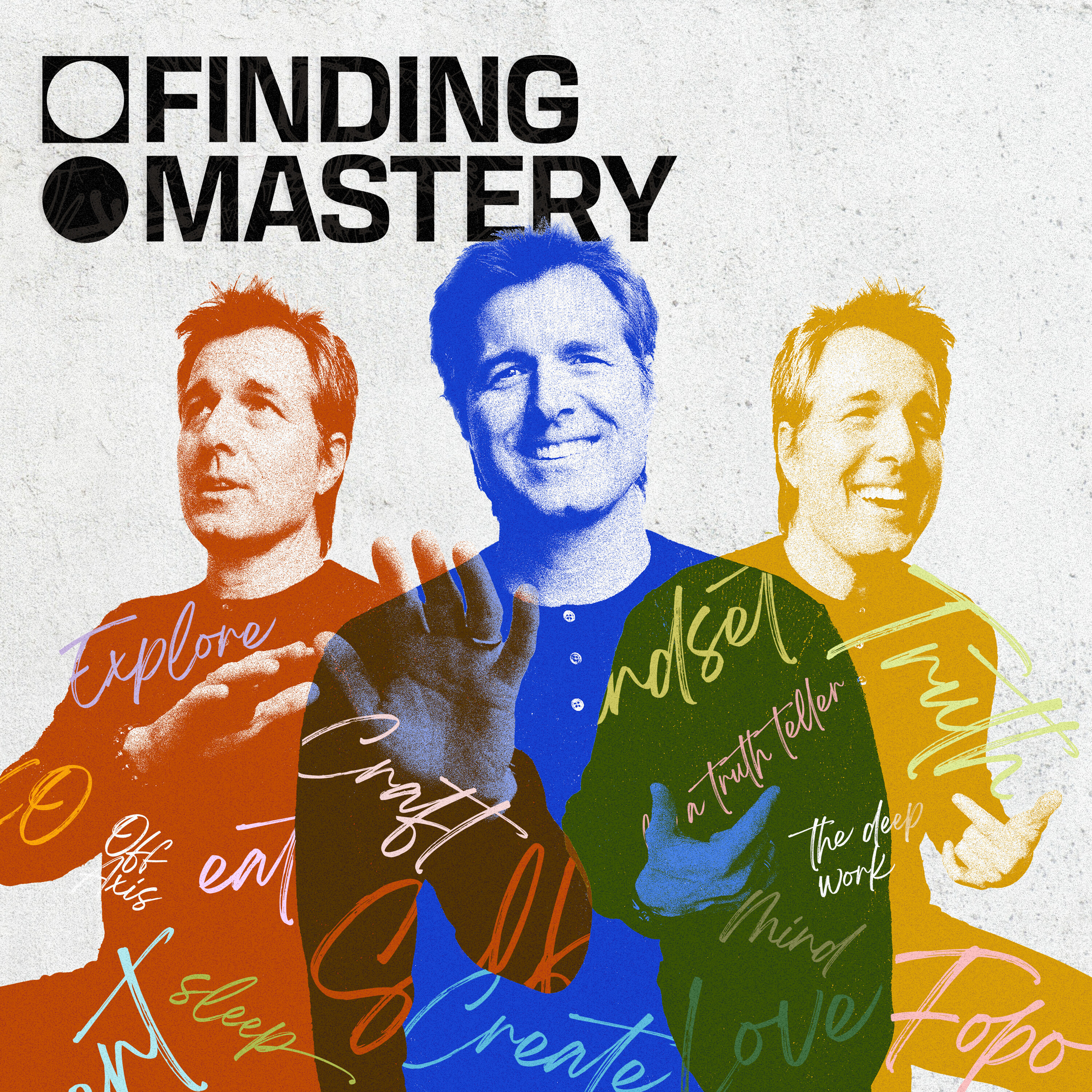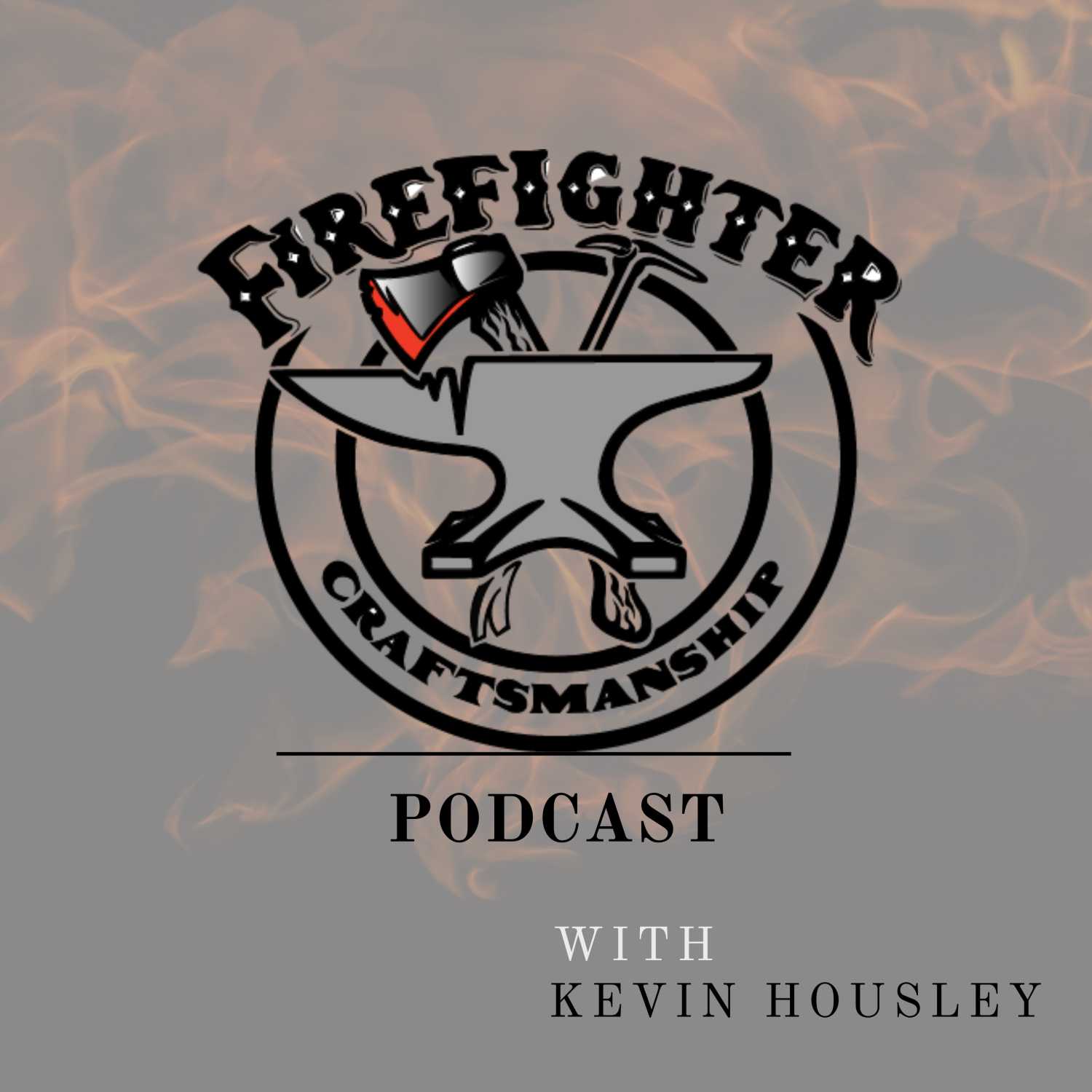
Crew 1st Culture Podcast
Real conversations and topics that inspire the pursuit of daily growth through humility, connection, and hard work.
Crew 1st Culture Podcast
L3 #2 - You Can't Take Everyone With You
Leadership Lesson Learned #2 was an important one for me - sometimes you have taken someone as far as you can take them. This was a challenge for me as a leader because it came down to a moral issue for me that I discuss. I talk about what I learned as far as where we should be placing our time and energy and what happens if we misplace those priorities. I share the story of how this lesson was learned and yes it was definitely learned the hard way so don't listen in and don't make the same mistakes that I did.
No matter where or what you came from, great things can come from you!
Jeremy Sanders (00:01.646)
What's going on everybody. Welcome back to the crew. First culture podcast. This is Jeremy. Thank you so much for joining me today. I really appreciate that today. I'm going to get into lesson number two of the leadership lessons learned. a couple of episodes ago, I started a new series. If you didn't catch that, it's just basically it's a, it's a list that I created to kind of give out to any of the
new younger officers in my department and or even people that are someday going to reach that level. And it basically is just some of the biggest lessons I had to learn the hard way when I was a company or a station officer. And so I just feel like there's a lot of value in that just the sharing of lessons learned and experience. And so
I decided just to kind of turn that list basically into a series and this is number two. Number two is you can't take everyone with you. So.
And I try to keep these short, but it's hard to keep them very short sometimes. This lesson was a big one for me because as a leader, took it very, took it very seriously, the responsibility of my people, the readiness of my people, the attitude of my people, just trying to even help each other become better people in general.
And so when I have somebody that isn't willing to perform at the level that everybody else is and giving me what I feel is their all, it was hard for me. It was hard for me to figure out how to handle that. I took it as a personal challenge almost.
Jeremy Sanders (02:11.286)
You have people and I'm sure it's like this everywhere. You have people that just, you know, they bounce around a lot. They'll be here for a while and then, you know, whatever happens, they get sent out somewhere else. so when I have people like this, I don't want to just send them down the road again. I want to be, and this is the...
Dialogue going on inside my mind during this time. I want to be the one that makes a difference finally. I want to be the leader that somehow pulls out the greatness that's inside of this person because I know it's there and and I want him or her to to truly see Who they are and who they can be you know, what so that's where I was and
And because of that deep desire to make a difference and to help this person, it really clouded everything else that I was doing. So the lesson that I had to learn was sometimes we've taken someone as far as we can take them. Sometimes you have somebody that
as much as you can try, as many different ways as you can try, you've brought him or her to the maximum level that you as a leader can bring them. And so because of that, it's time to send them somewhere else and get somebody else in that seat that is going to take advantage of
the leadership and the mentoring and all the other things. Because for one, that's exactly what's happening. You're putting a lot of time and effort into somebody that is not going to give you any return. Not me personally, but you're not going to see any return in their actions and their behaviors and their choices. And so...
Jeremy Sanders (04:33.198)
opening up that seat and freeing it to bring somebody else in allows you to hopefully start this process with somebody else that you can make a difference in their life now. And so that's kind of where I had to get to. And it was a huge, I would say, a moral dilemma for me as a leader because it's like, I don't want to give up. I don't want to to stop trying. I don't want to
move this person down the line without seeing that I did something good. But it was a necessity because what I didn't understand that somebody had to bring up to me was that really what I was doing in reality was that I was putting so much into this person. And for one,
It was taking so much out of me. It was really just sucking everything I had to give for this one person without really getting anything back. Like I said, I wasn't seeing the return on that investment that should have been. And for two, what I was doing in reality was that I was
spending all of this time and effort and energy and emotional energy on one person and I was really in effect ignoring everybody else on the crew and I wouldn't say completely ignoring but as far as the energy I put into them as far as the just trying to be a leader to them or mentor to them it was it was very very minimal in comparison
to what the other person was getting. And so that was causing issues. And so I'm very thankful that somebody reached out to me and was honest enough to have that conversation with me to let me know that because it just never occurred to me that I was allowing this to happen. I was allowing my higher performers and even my, you know, the...
Jeremy Sanders (06:55.222)
the ones in the middle of the road. was allowing them to feel like they were being ignored. Like I just discounted what they were doing.
because I was focusing on one person. And from their eyes, of course, what this looks like is, I mean, it's just like when you are thinking about how you're dealing with your kids. You gotta think about the, not just the cause and effect of the outside, of just what is going on and how I'm going to handle this. You gotta almost dig deeper and say,
All right, if I use this form of discipline or if I make this choice, how is that going to look to them or others? And that's what it was doing is it was almost saying, well, I'm doing all this. I'm doing everything he asked me to do. I'm going above and beyond. And it's like he doesn't really care. All he is.
worried about right now is focusing on this other person that is not really doing anything. So why should I do something? That's what I was allowing to start to happen and I never saw it. Never saw it at all. So from that lesson that I learned, I had to kind of break through another moral dilemma as a leader and
really decide where my time and energy was going to go. And, you know, some of my classes, I bring this up and the numbers are all made up because, who knows, but I would say you break the fire service down into 20, 60, 20. So you got 20 % is your high performers, the people that are the go-to get them done people. You got
Jeremy Sanders (09:05.358)
20 % that's on the bottom that, you know, they're, the cave dwellers. I can't remember where I got that from, but the cave dwellers are constantly against virtually everything. These are the people that gripe about everything. They, they are not happy with anything. They don't like fires. They don't like medical calls. They don't like anything. And so
You got the 20 on top, the 20 on bottom, and of course you got the 60 in the middle. just, they're just, they're, they're decent firefighters. They do their job. They do what they're asked, but they're just not going to do anything above. And the scary part of this is that 60 % is the vast majority of the fire service. And they're not, they're not only no close to being better.
but they're close to being worse too. so by putting all my energy and focus into the lower 20%, for one, I'm not getting any return on that investment. And for two, I'm ignoring the top 80%. And so it's just not worth your time and your effort. And so...
What I decided to do was I decided to start basically flipping my entire mindset. I started to focus on that top 20 % or just forget the numbers. I started focusing on the higher performers, spending my energy and effort into trying to keep them going and inspired and pushing forward. And as that is happening, I'm also
working to have them help me recruit that middle ground. So we're pushing the top forward. We're gaining a lot of lot on our investment. But the magical part of that as well is we're using this group now to start bringing people from that middle ground up the chain.
Jeremy Sanders (11:27.566)
and starting to raise their efforts and their energy and their skill level. And so once that started happening, was a really powerful kind of change for us. It really made a huge impact on the crew. And I think there's a lot of value there. So the question is, what do we just?
Let the bottom, the cave dwellers, we let them do whatever they want or we, you know, totally don't keep them accountable for anything or, you know, what, what is the, what is the line in the sand there? And personally, I'm going to say, I don't know that's for you to really decide, but for me, no, I'm not going to let them do whatever they want. I'm not going to let them just sit in recliner all day while we're doing stuff.
outside training, you know, getting better. They are going to be involved in things that we do as a crew. Am I going to drag them out if we're doing some extra stuff working out or, you know, just doing some, some things that aren't really included in that crew training? No, I will let them know this what we're doing, but I'm not going to drag them out. I'm not going to waste all this time and energy and air trying to
incorporate them, everything we do.
Jeremy Sanders (13:01.486)
I'm going to hold them accountable for what needs to be done. But the extra stuff that, that separates the people that are really, really good at the job and those that can, can make it work. Those extra things, I'm just going to let them know what we're doing and let them choose, you know, if, they choose to involve themselves, that's great. I hope they do.
but I'm not going to sacrifice the energy and the effort that everybody else has given while I dragged this anchor around. And so again, you know, it was, these things were some big moral walls that I had to figure out how to maneuver either around or over.
Really what it came down to, I think is, and this is, I don't know if this is Steve's personal quote, but I heard this from a class of, from Steve Pruszynski. He said, we can't force someone to hear a message that they're not ready to receive. So basically what that is saying is sometimes, and this is not just low, the low side of the scale. This is, I mean, this is me.
I can't tell you how many times I've listened to something multiple times and each time I hear it, I hear something different. I pull something different out because I wasn't ready to hear those other things at first. I wasn't ready to hear what I heard the third time that second time. So this is for everybody. If somebody is not in a place mentally, emotionally,
whatever it is to receive whatever message you're sharing, that's out of our control. We cannot control that. Our job is to plant the seeds. And that's what we have to remember. We can never underestimate the power of planting seeds. We have nothing to do with if and when those seeds are going to propagate and sprout.
Jeremy Sanders (15:24.494)
and grow a giant tree. We have no power over that. The power that we have is in sharing those seeds, sharing the message, sharing the inspiration that we have for serving others, sharing the passion that we have for whatever area we have passion in. Those are seeds that we throw out and hopefully the right people that need
to hear them, need to see them, need to feel them are there. But again, if they're not, we have to trust that sooner or later the right people will be there. And as long as we keep sharing.
That's really all we can do. So again, we can't force someone to hear a message that they are not willing or ready to receive, but never underestimate the power of planting seeds. And that's ultimately the only thing that we can control. So to wrap it up, this is another saying or quote that I have no idea where it came from, but you see it quite a bit.
But I think it speaks volumes to exactly what we're talking about today. Lower your standards and lose your winners. Raise your standards and lose your losers. So that right there tells us that if we're trying to push the minimum standards, if we're not wanting to go a step above that, we just...
As long as we are hitting those minimum standards, we're good. We're not going to do anything else. The high performers don't want to be involved in that. The people that are truly making a difference in people's lives and in the world, they don't want to be pushed at that low level. They want to be pushed and challenged at a much higher level. So they aren't going to stay in that environment.
Jeremy Sanders (17:35.257)
by raising the standards and by setting the standards every time you do something. Yeah, you're going to run some people off, but it's the people that you want run off. It's the people that aren't willing to continue to challenge themselves and to continue to push the envelope and grow both individually and as a crew. Those are the people that are going to run when you start raising the standards. But the ones that are going to stay
when you raise the standards are the ones that you want by your side. And so right there, that's kind of how I want to wrap all this up.
If we are wanting to attract and keep the best people, the best performers, the best firefighters, then we have to be okay with raising the standard every day, growing, learning, pushing ourselves, pushing the envelope, challenging ourselves, our abilities. That's how we keep.
the best. That's how we draw the best towards us.
And that's how those that are at the other end of that spectrum just kind of find their way out of the door on their own. And to me, that is a win-win. And so hopefully you got something out of that. this is a lesson that, I mean, this whole thing is really probably three or four years in the...
Jeremy Sanders (19:19.95)
you know, in the process of when it started and kind of towards the end of when I had things figured out. So this wasn't a 20 minute lesson that I learned. This was a long ordeal. And so it made a really big impact on me as a person. It made a big impact on me as a leader. And I hope that it will help you as well. So thank you for your time. I really, really appreciate it. Please.
Support the podcast by sharing it, liking it, subscribing, and keep pushing forward, keep sharing that message. Thank you, and remember, no matter what or where you come from, great things can come from you. Thank you.
Podcasts we love
Check out these other fine podcasts recommended by us, not an algorithm.

Serendipity With Inky Johnson
INKY JOHNSON NETWORK -
FIT TO FIGHT FIRE
FIT TO FIGHT FIRE
On Air by Yoga For First Responders
Yoga For First Responders
Finding Mastery with Dr. Michael Gervais
Dr. Michael Gervais
Student Of The Game Fire Podcast
Danny Beauvais
Journeyman Firefighter Podcast
Brothers in Battle Media
Firefighter Craftsmanship Podcast
Kevin Housley
Maxwell Leadership Podcast
John Maxwell
3 Point Firefighter
Jake Barnes
The Weekly Scrap, Firefighter Podcast
Corley Moore